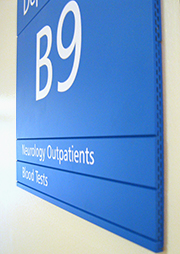Parkinson's Disease
Parkinson's Service - Contacts
The Parkinson's Service & Contact Details
 Two teams in the hospital provide input to Parkinson's patients:
Two teams in the hospital provide input to Parkinson's patients:
OPU Parkinson's Disease Service
Fax 1287Run by Dr Evans and Dr Fackrell
Neurology Service
Fax 1865Run by Dr Giffin and Dr Lyons
These teams should be contacted by 'pink slip' in the normal way, backed up if very urgent with a phone call. Please read the criteria for urgent review before phoning:
| OPU secretary: | ext: 1028 |
| Neurology secretary: | ext: 4526 or 5447 |
Apomorphine pumps or Dudopa infusions
When patients are on either of these, inpatient nursing support is via:
ext 1305 or 1285
Physiotherapy
Physiotherapy is very important for PD patients. Ward physiotherapists can get specialist support from Rachel Malthouse or Robyn Heath (ext 1047 or bleep 7144), or by contacting Pulteney Ward (ext 1305 or 1285) and asking to speak to the ward physiotherapist.
Parkinson's UK provides information for physiotherapists working with PD patients.
Community PD Nurse Specialists
- BANES:
Sue Charlton (01225 831676) - West Wiltshire:
Jackie Chamberlain (01249 454374) - North Wiltshire and Devizes:
Kate Golding (01249 456592)
The PD nurse specialists often know individual PD patients really well and can provide detailed information about them.
It helps them too to know when and why their patient has been admitted:

